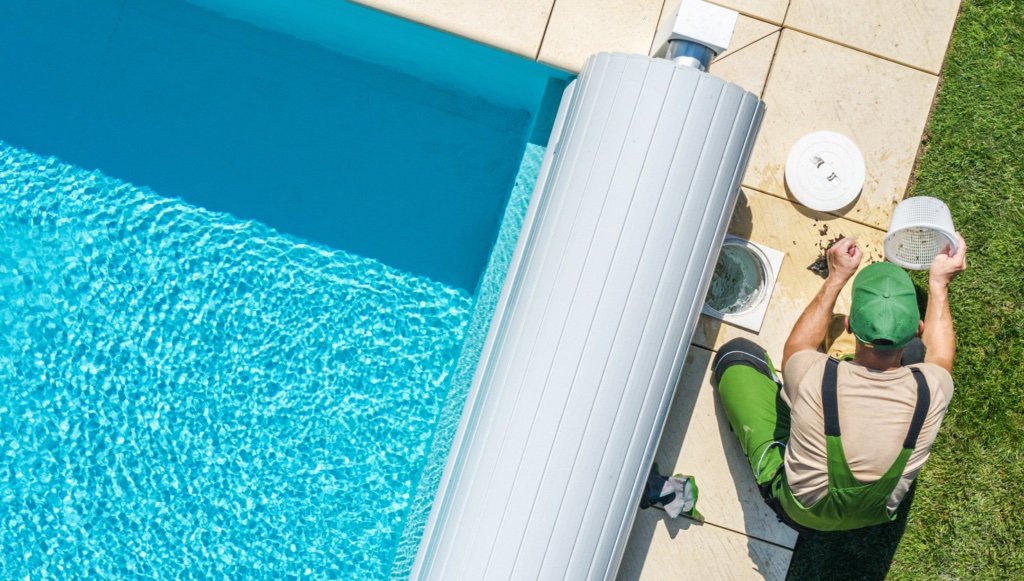Related Articles

Mar 03, 2025
How Dispatch Software is Transforming Field Service...

Feb 26, 2025
How To Get Started On Spring Pest Control Services
Feb 26, 2025
May 10, 2022
# of Minutes to Read

Pool maintenance season is right around the corner, and maintaining a pool is not a cheap nor easy endeavor. As your clients begin to open their pools for a long summer season, they will likely turn to your expertise to help them care for their pools. To help your field service business balance the various incoming pool service requests, knowing the ins and outs of your industry is essential. Walk into the summer knowledgable and ready to tackle all your clients’ pool service needs with our tips!
After a long winter, there is likely a considerable amount of debris and buildup on your client’s pool cover. There are two types of pool covers, and each requires a different cleaning method.
Automatic Pool Covers are a bit more difficult to clean, but it is very doable nonetheless. This cover is attached to the pool, so when the summer months roll around, they don’t need to be stored away. However, they’re certainly still ready for a good clean. If it is dry, a leaf blower is a great tool for getting dirt, sticks, and other unwanted matter off the cover. On the other hand, if it is wet, a hose is effective in clearing the dirt off the cover. In the case of discoloration or stains, applying soap and scrubbing at the stain should do the trick.
Tarp Pool Covers provide an easier, faster cleaning experience for your field service worker. Simply grab a hose and spray the tarp. In the case of stains, you can also use soap and a rag to scrub the mark. When storing this cover, roll it up as you remove it from the pool. Then, fold it and store it in a sealed bag to protect it from any damages, and advise your client to put it in their garage where children, animals, or the weather cannot cause damage.
Vacuuming the pool is simple pool maintenance that requires almost no heavy lifting as many pool vacuums are robotic. To avoid dirt buildup, advise your clients to vacuum their pools twice a week. This will keep their pool looking fresh, protect their pool liner, and ultimately up their home value.
Different elements of the pool must be replaced at varying times. Encouraging your clients to monitor when they need to replace an item or call their technician to check up on their pool regularly will prevent any part of their pool from expiring and causing damage. Here are three crucial elements of a pool and when they typically require replacement:
The pump moves the pool water around in such a way that causes the debris in the water to wash down the sides of the pool into the filter and the heating systems. They also prevent the growth of algae and other bacteria, so they should be running during the day. Pool pumps usually last between 8-15 years depending on the quality and the level of care shown toward the pump.
The filter sifts through and collects any drift in a pool. It must be cleaned once every six months by soaking it in an appropriate cleaner. The filter cannot handle any rough washings, and doing so will wear away at the lifespan of the filter. If cleaned regularly and cared for, your client’s pool filter should only need to be replaced every 3-5 years.
The chlorinator pushes chlorine and cleaning chemicals into your clients’ pool. As the main cleaning agent of the pool, the inclusion of a working chemical feeder is essential. These devices usually must be changed every four years.
Remember, pool care is no small feat. With the summer quickly approaching, your field service business will have many pool maintenance requests. Educating your technicians about proper pool care will allow you to assist many clients with ease.

Mar 03, 2025

Feb 26, 2025
Feb 26, 2025